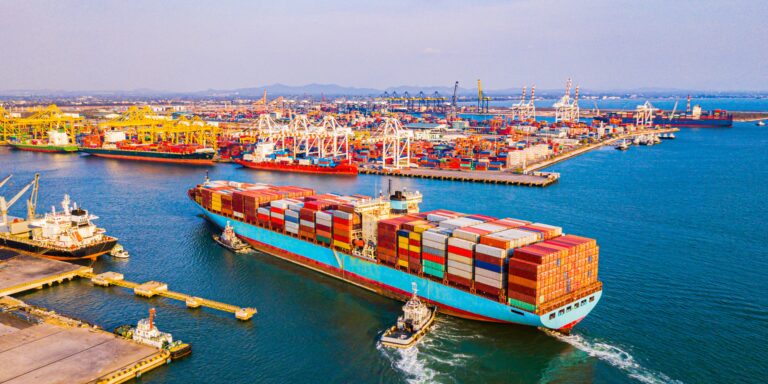New Post-Brexit Border Controls: Implications for Importers and Exporters
On April 30, the second phase of Britain’s new post-Brexit border controls for food imports from the European Union is set to commence, marking a significant milestone in the evolving trade landscape between the UK and the EU. This latest development, part of the Border Target Operating Model (BTOM), introduces physical checks for “medium risk” animal products, plants, and plant products, along with new charges for importers bringing goods through the Port of Dover and Eurotunnel. As the implications of these changes reverberate throughout the import and export industry, it becomes crucial for businesses to understand and adapt to the shifting trade dynamics.
Key Changes and Implications:
The new post-Brexit border controls starting on April 30 introduce physical checks for a range of products, including chilled and frozen meat, fish, cheese, eggs, dairy products, as well as certain cut flowers and seeds. Importers bringing goods through the Port of Dover and Eurotunnel will face new charges levied by the government, aimed at covering the costs of the new controls and systems. However, amidst these changes, confusion lingers among importers regarding the frequency of physical checks, charges, and the role of the Sevington border control post located inland from the port of Dover. Many smaller retailers and wholesalers fear that the checks and charges could hurt their businesses, limit product variety and freshness, and lead to price increases. This uncertainty has prompted some businesses to stock up on goods in anticipation of potential disruptions post-April 30.
Challenges for Importers:
Importers are confronted with uncertainties regarding the frequency of physical checks, charges, and the operational role of the Sevington border control post. The lack of access to an up-to-date list of private control posts and their charging rates adds to the complexity of the situation. Smaller importers, in particular, are concerned about potential disruptions to their supplies, especially those who engage in groupage, where truckloads are shared with other suppliers. These challenges pose significant hurdles for importers in navigating the new border controls and adapting their operational strategies to mitigate potential disruptions.
Government Response and Rationale:
The UK government has emphasized its intent to take a “pragmatic approach” in introducing the checks, aiming to minimize disruptions and maintain high levels of compliance. Stressing the importance of the new checks in preventing diseases and pests from entering the UK, the government views these measures as crucial for ensuring biosecurity and leveling the playing field for UK exporters. However, the government’s approach, combined with insufficient clarity about operational details, has contributed to prevailing confusion and concerns among importers, prompting a critical need for enhanced communication and transparency.
The imminent implementation of the new post-Brexit border controls starting on April 30 presents a pivotal moment for importers and exporters, particularly those involved in food imports from the EU. As businesses brace for the potential impact of physical checks and new charges, proactive measures such as closely monitoring regulatory developments, diversifying supply chains, and enhancing collaboration with industry stakeholders become imperative. Clear communication from authorities, coupled with proactive engagement from businesses, will be vital in navigating the complexities and uncertainties surrounding the changing trade landscape post-Brexit.
Source article: https://www.usnews.com/news/world/articles/2024-04-22/factbox-what-are-the-new-post-brexit-border-controls-starting-on-april-30

Importing 201
Did you know that U.S. Customs requires that importers have written policy and procedures for record-keeping and customs compliance? This course builds upon techniques presented in our U.S. Importing course and explains how to implement and strengthen your import controls. The course also describes what you should do to prepare for the eventuality of a CBP audit.








